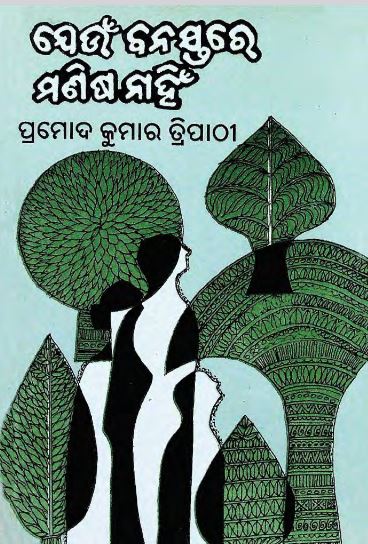Jeun Banastare Manisa Nahin,penned by the acclaimed playwright Pramod Kumar Tripathy, is a compelling Odia drama that explores the intricate facets of human nature, societal norms, and moral dilemmas. First published in 1999, this work has garnered acclaim for its engaging narrative and profound character development, making it a significant addition to the corpus of Odia literature
Set against the backdrop of a small village, the story revolves around multifaceted characters who find themselves at the crossroads of tradition and modernity. The title, which translates to “No Human in the Forest of Deceit,” serves as a metaphor for the moral vacuity and ethical dilemmas faced by the characters. The drama unfolds through a series of poignant events that reveal the transformative power of truth and the consequences of deception.
The protagonist, a young and idealistic man named Raju, embodies the struggle between personal ambitions and social responsibilities. Raju dreams of a better life for himself and his family, but his aspirations are thwarted by the rigid societal structures and expectations implicit in village life. He becomes embroiled in a complex web of relationships and conflicts with other characters, each representing different aspects of society—from the traditionalist who clings to the past to the modernist who challenges existing norms.
As the drama unfolds, Raju encounters varied personalities, such as his wise grandmother, who embodies traditional values, and his ambitious friend, who represents the pursuit of success at the cost of ethical considerations. The interplay between these characters weaves a rich tapestry that explores themes of love, loyalty, betrayal, and redemption.
Pramod Kumar Tripathy’s masterful character development lends depth and authenticity to the narrative. Raju’s internal conflict is mirrored in the lives of others around him, reflecting the broader struggle of individuals in a rapidly changing world. The grandmother’s character offers wisdom and a sense of grounding, while Raju’s friend exemplifies the allure of ambition tainted by moral compromise.
The characters’ interactions evoke a range of emotions, compelling the audience to reflect on their own values and decisions. The playwright skillfully balances humor and gravity, ensuring that the audience remains engaged while grappling with profound questions about the nature of humanity and integrity.
One of the central themes of “Jeun Banastare Manisa Nahin” is the dichotomy between truth and deception. The narrative emphasizes the perils of living inauthentically and the ultimate quest for truth as a path to redemption. Through Raju’s journey, the audience is encouraged to contemplate the moral implications of their choices and the impact of societal pressure on individual lives.
Another significant theme is the clash between tradition and modernity. The drama encapsulates the tensions that arise as individuals navigate their identities within the confines of cultural expectations and the desire for progress. This theme resonates with contemporary audiences, making the work relevant across generations.
Jeun Banastare Manisa Nahin stands out as a thought-provoking and emotionally resonant work that captures the essence of human experience. Pramod Kumar Tripathy’s adept storytelling and rich characterizations contribute to a narrative that is both entertaining and enlightening. This drama not only enriches Odia literature but also serves as a mirror reflecting the ethical challenges that persist in society today. As readers engage with this timeless story, they are encouraged to explore the depths of their own moral compass, making it a must-read for anyone interested in the complexities of human nature and societal dynamics.
Books Info
| Books name | Jeun Banastare Manisa Nahin |
| Author | Pramod Kumar Tripathy |
| No Of pages | 114 |
| Publisher | Orissa Book Store |
| Publication | 1999 |
| Printed At | Indrani Offset |
| Distributor | NA |

